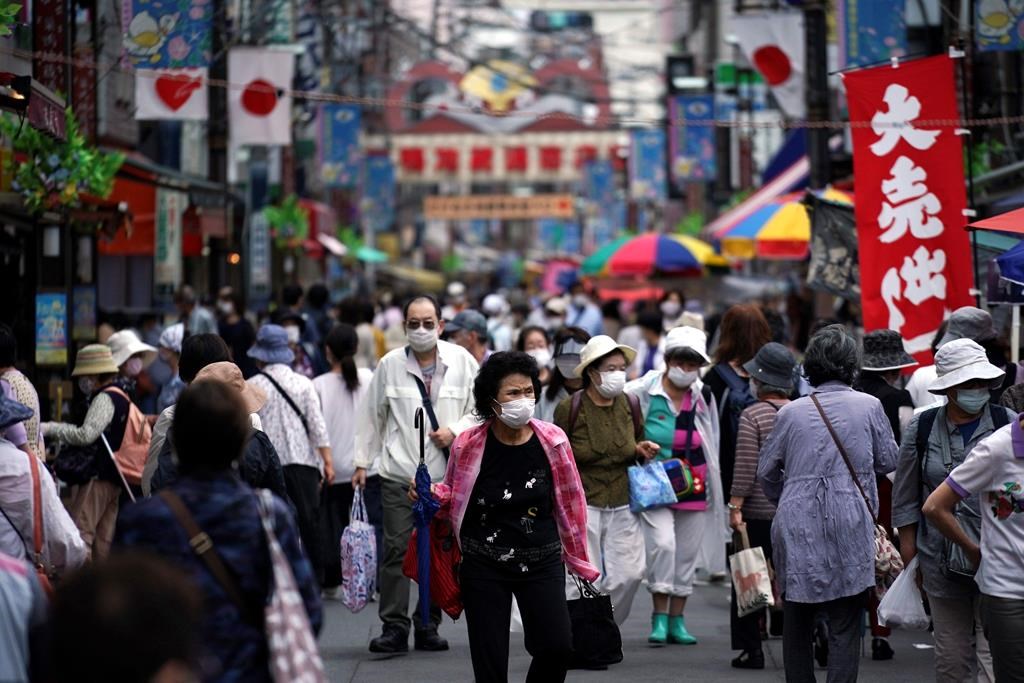Japan’s economy sank deeper into its worst postwar contraction in the second quarter as the coronavirus jolted businesses more than initially thought, underscoring the daunting task the new prime minister faces in averting a steeper recession.

Other data put that challenge in perspective, with household spending and wages falling in July as the impact of the pandemic kept consumption frail even after lockdown measures were lifted in May.
The world’s third-largest economy shrank an annualised 28.1% in April-June, more than a preliminary reading of a 27.8% contraction, revised gross domestic product (GDP) data showed on Tuesday, suffering its worst postwar contraction.
The data will put the new prime minister, to be elected in a ruling party leadership race on Sept. 14, under pressure to take bolder economic support measures.
Chief Cabinet Secretary Yoshihide Suga, the frontrunner to become next leader, has signalled his readiness to boost spending if he were to lead the country.

Suga, 71, formally submitted his candidacy for the Liberal Democratic Party leadership last week. The chief government spokesman faces two younger contenders, former Defense Minister Shigeru Ishiba and former Foreign Minister Fumio Kishida, both 63.
Prime Minister Shinzo Abe is stepping down for health reasons, which he announced last month, saying he did not want his illness to get in the way of decision making during the pandemic and the economic recovery.
“The risk ahead is that the effect of measures taken so far, such as pay-outs to households, will peter out,” said Koichi Fujishiro, an economist at Dai-ichi Life Research Institute.
“If COVID-19 weighs heavily on wages, the new administration could take additional steps to help households.”

Get weekly health news
The government has so far unveiled a $2 trillion package of stimulus measures, adding to an enhanced easing programme from the Bank of Japan (BOJ).
Japan recently saw a renewed rise in infections but has been spared the kind of big casualties seen in western countries. Total infections stood at 72,321 as of Monday, with 1,380 deaths versus a global tally of over 27 million cases and more than 888,000 deaths.

The main culprit behind Tuesday’s downward GDP revision was a 4.7% drop in capital expenditure, much bigger than a preliminary 1.5% fall, suggesting the pandemic was hitting broader sectors of the economy.
“We can’t expect capital expenditure to strengthen much ahead. Companies won’t boost spending when the outlook is so uncertain,” said Hiroshi Miyazaki, senior economist at Mitsubishi UFJ Morgan Stanley Securities.
Japan’s economy has shown some signs of life after suffering three straight quarters of contraction, with factory output rising in July at the fastest pace on record thanks to rebounding demand for automobiles.
Yet separate data on Tuesday suggested any recovery will likely be modest, as household spending fell a bigger-than-expected 7.6% in July year-on-year, while real wages declined for the fifth straight month, pointing to more pressure on consumer spending.
Broad impact
The health crisis has ravaged a broad array of sectors, with firms such as automaker Honda Motor Co forecasting a 68% decrease in annual operating profit.
Analysts polled by Reuters in August said they expect the economy to shrink 5.6% in the current fiscal year to next March, and grow just 3.3% the following year.

The fresh batch of data will be among factors the BOJ will scrutinise at its rate review next week, when it is widely expected to keep monetary settings unchanged.
The central bank eased policy twice this year to pump money to cash-strapped small firms, complementing two big government spending packages.
The BOJ is widely expected to hold off on ramping up stimulus for now as steps to spur demand could get people moving more freely into shops and risk spreading the virus.
The global and domestic business climate has many Japan observers predicting a long and bumpy road to returning the economy to pre-COVID levels.
“It will probably take a long time for the economy to normalise and return to levels before the pandemic,” said Yoshiki Shinke, chief economist at Dai-ichi Life Research Institute.
(Reporting by Leika Kihara and Daniel Leussink; Editing by Gerry Doyle & Shri Navaratnam)








Comments
Want to discuss? Please read our Commenting Policy first.